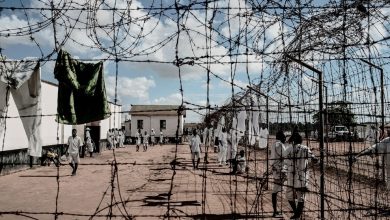Knowing your weaknesses is a sign of strength
A story is told of how one lawmaker, then deputy Minister of Health, would dodge members of the fourth estate after presiding over a ministerial function. He could not articulate himself in English. You could scour the Parliamentary hansards from the time he became Member of Parliament (MP) to date and you would rarely see his name.
When Goodall Gondwe became ‘too big’ and Malawians dubbed him ‘a messiah’ for sweet-talking the Bretton Woods masters [IMF and World Bank], he was demoted to the less lofty position of leading the local government portfolio. Now, any local government job means you have to deal with traditional leaders, the majority of whom cannot speak the Queen’s language . So you can imagine the dilemma he faced. I am sure some Malawians covered their faces and waited with bated breath when the Malawi Broadcasting Corporation (MBC) carried an interview with Gondwe in Chichewa after he had addressed traditional leaders in Ntchisi. Gondwe did not speak Chichewa. Up to now he does not pretend that he could articulate issues in the language, although he is very comfortable with the one he was weaned on, Tumbuka.
Just the other day in Parliament, the Speaker struggled to translate for the minister the adage: ‘Kukomera mbuzi kugunda galu’.
Knowing your weaknesses is a sign of strength and the two men mentioned above were not chastised for not speaking English or Chichewa well. On the contrary, the media and Malawians understood.
But if this is the case, then it baffles the mind to see a leader whose poor command of the vernacular language is so famous that it should be sad when he does not learn from his own mistakes.
Much as it is blasphemous to blame the almighty for giving us a leader who has just said to Malawians, ‘let them eat grasshoppers and mice,’ our leaders truly are a reflection of the kind of people we are. We deserve him.
But surely, as Malawians we already eat mice and grasshoppers. They are a big source of protein. Cassava is a staple in some parts of the country.
But not long before that, he was telling civil servants, the people he employed to work for millions of Malawians, to supplement their income through other means because he would not raise their salaries. On Monday, he was at it again declaring that our country is famous for bad things because we, the people are daft.
A leader who speaks well elicits confidence in his people and Winston Churchill comes to mind. The ever arrogant Margaret Thatcher was told her high-pitched voice would lose her votes and she swallowed her pride. It did not mean that she was not intelligent. Closer to home, the first democratic president who misplaced a decade of the country’s development got himself an English tutor. To listen to Bakili Muluzi now, you would not believe he was the same man of 1994.
But are we really surprised that our leader seems not to be in touch with reality and if he has a vision at all he cannot communicate it properly? This is a man who prior to 2013, some college students in the United States (US) said this of him: “You cannot understand what he is saying, the lectures are unhelpful and the exam is completely random.”
But what do some young college students know about verbal articulation, right? Like any other Malawian, allow me to make excuses for him. The man suspected of being Malawian for over 40 years and briefly visited the country to help draft the Constitution before his brother recalled him home.
This excuse does not suffice, however, when you consider that how he talks is not an accent. What sprouts out of his mouth is possibly ideas generated over a period of time, but whether due to pride or arrogance he does not seek help with articulating them in the vernacular.
I would suggest, impolitely, that our leader shut up for a while and quickly enroll in a Chichewa language class. Silence cannot be misquoted, your excellency. n


